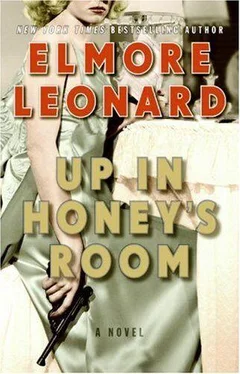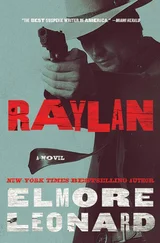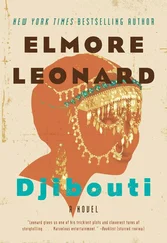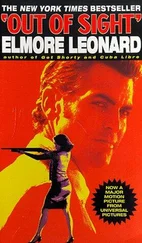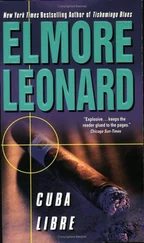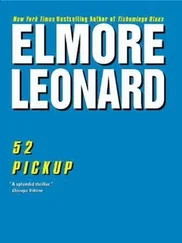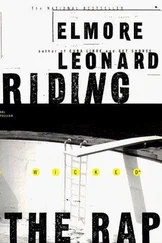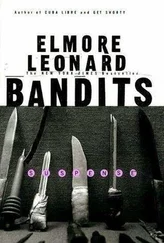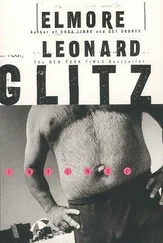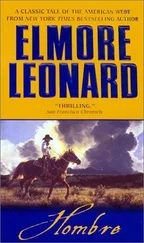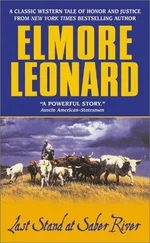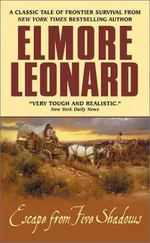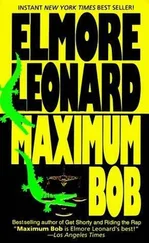Elmore Leonard
Up in Honey's Room
For my boys, Pete, Chris and Bill
Honey phoned her sister-in-law Muriel, still living in Harlan County, Kentucky, to tell her she’d left Walter Schoen, calling him Valter, and was on her way to being Honey Deal again. She said to Muriel, “I honestly thought I could turn him around, but the man still acts like a Nazi. I couldn’t budge him.”
“You walked out,” Muriel said, “just like that?”
“I valked out,” Honey said. “I’m free as a bird. You know what else? I won’t have to do my roots every two weeks. Dumb me, I spent a whole year wanting him to think I’m a natural blonde.”
“He couldn’t tell other ways you aren’t?”
“Anytime Walter wanted some, he’d turn out the light before taking off his pajamas. He was self-conscious about being skinny, his ribs showing, so it was always pitch-dark when we did it. He said American food, all it did was give him gas. I had to learn to cook German, big heavy dinners, sauerbraten with red cabbage, bratwurst. For the first time in my life I had to watch my weight.
Walter didn’t gain at all. He still passed gas, only now it was okay, it was German gas. He’d cut one, aiming his finger at me like it’s a gun? I’d have to pretend I was shot.”
“And fall down?”
“If I was near the sofa. Or stumble around holding where I was shot. The first time, I did it on my own, acting goofy? But then every time he cut one and I heard it, I had to pretend I was shot.”
“You and hubby having fun.”
“Except he never laughed or even smiled. I’d see him aiming at me . . . ” Honey let a moment of silence go by. “Tell me how my brother’s doing. Is he working?”
“He’s back in jail. Darcy got in a fight he swears he didn’t start. Broke his foreman’s jaw and it violated his parole. Darcy has to finish the sentence he got for making moonshine and do time for assault. He’s working in the kitchen as a butcher making five cents an hour while I’m trying to live on tips.” Muriel’s voice turned pouty saying, “‘What do I have to do, get you boys to have another round?’ Here’re these hotshots with coal dust in their pores saying things like ‘How about showing us your goodies?’ I roll my eyes and act cute, it’s worth about a buck and a half. But hey, I want to hear about your situation. Walter hit you and it woke you up or what? You were only married to him about a year.”
“One year to the day I walked out,” Honey said, “November the ninth. I brought him a plate of Limburger and crackers, he won’t eat American cheese. Walter’s sitting by the radio, the volume turned up. I said, ‘You happen to know what anniversary today is?’ He’s listening to the news, the German Army going through Poland like rhubarb through a tall woman. France is next and England’s getting ready. I asked him again, ‘Walter, you happen to recall what anniversary falls on November the ninth?’ It was like I lit his fuse. He yells at me, ‘ Blutzeuge, the Nazi Day of Blood, idiot.’ He’s talking about the day Hitler started his takeover in 1923 that didn’t work and he ended up in prison. But that date, the ninth of November, became a Nazi holy day. It’s why he picked it for our wedding. ‘The Day of Blood.’ Only Walter called it ‘the Night of Blood’ as we’re going to bed together for the first time. I let him think I was still a virgin, twenty-five years old. He climbed on top, and it was like a one-minute blitzkrieg start to finish. He never asked if I was okay or checked the sheet, he was through. Anyway, I said to Walter, standing by the radio with his cheese and crackers, ‘Dumb me, I thought you’d remember the ninth as our wedding anniversary.’ He didn’t bother to look up, he waved his hand at me to get away, stop bothering him. I took that as my cue and walked out.”
Muriel said, “You didn’t hit him over the head with the cheese plate?”
“I thought about it but went upstairs and took twelve hundred dollars, half the money he kept stuck away in the bedroom closet. He didn’t think I knew about it.”
“Is he on the lookout for you?”
“Why, ’cause he misses me? We had so much fun together?”
She told Muriel, now that she wasn’t keeping house for the Kaiser she had an apartment in Highland Park and was back at J.L. Hudson’s doing what she called “tit work,” fitting brassieres on big foreign women who’d come here to work. “Some of ’em, you have to hold your breath or their B.O.’ll knock you unconscious.” She told Muriel she ought to come to Detroit and stay with her, get a real job while Darcy’s doing his time. Next, she had to ask about her mom. “How’s she doing at the home?”
“I doubt she knows where she is,” Muriel said. “I walk in and kiss her, she gives me a blank look. It’s pitiful, your mom not being that old.”
“You sure she isn’t faking, playing ‘poor me’? Remember I came here I asked her to live with me? She says oh, it’s too cold up north. Afraid she’ll slip and fall on the ice and break her hip.”
“The other night,” Muriel said, “they showed an Errol Flynn movie and your mom got excited, she thought Errol Flynn was Darcy.” Muriel put on a slow tone of voice and was Honey’s mom, wanting to know, “‘What’s Darcy doing in this movin’ pitcher? When’d he grow a mustache?’ But anytime Darcy came to visit, her only living son, your mom didn’t have a clue who he was. I told Darcy how she got him confused with Errol Flynn, Darcy says, ‘Yeah . . . ?’ Like, what else is new? He thinks he’s a dead ringer for Errol Flynn except for the mustache. You want to bet he isn’t growing one this minute, sitting in his prison cell?” She said, “You see a resemblance, Darcy and Errol Flynn?”
“Maybe a little,” Honey said, remembering Walter Schoen asking the same question, who she thought he resembled, that day they first met. Now Muriel was saying she had to get ready for work, tease her hair and pad her bra. Honey said, “Talk to you soon.”
This was in November 1939.
She hung up the phone still thinking of Walter a year ago, in front of Blessed Sacrament Cathedral, waiting for her. Honey coming out of eleven o’clock Mass. Walter buying Social Justice from a boy who carried the tabloid in a sack hanging from his shoulder. Walter seeing her as he turned, waiting among the people walking past him, Walter moving now to head her off and she stopped in front of him. He stared at her, finally taking off his hat.
“Your name is Honey Deal, yes?”
She said, “Yeah...?” with no idea what he was up to.
He took her hand and introduced himself, Valter Schoen, with his accent and the hint of a bow and, Honey believed, clicking his heels, though she wasn’t positive.
“Last Sunday,” Walter said, “I observed you talking to a woman I know is herself from Germany and asked her your name. She told me Honey Deal. I said to her what kind of name is Honey? She could be Nordic, her blond hair.”
“I’m German,” Honey said, “but born and raised in Harlan County, Kentucky.”
They stood looking at each other, Walter Schoen wearing little round pince-nez glasses pinched on the bridge of his nose, his hair shaved high on the sides and combed flat on top. Honey saw it as German military, judging from pictures in Life of Adolf Hitler and his crowd. Walter even looked like one of them. He replaced his hat, touching the brim with the palms of his hands, making sure the brim took a slight turn up on one side and down on the other. Honey could see him staring into a mirror to get just the right look: Walter Schoen in a four-button slim-cut suit that had to be tailor-made, a black suit buttoned up on his bony frame; Walter staring like he was making up his mind about her, the paper he’d bought from the kid, Social Justice, folded under his arm.
Читать дальше
